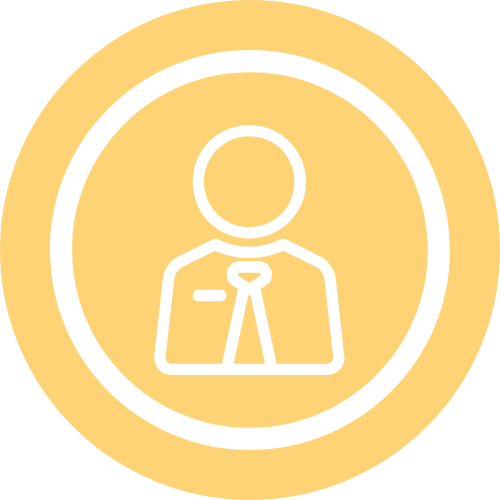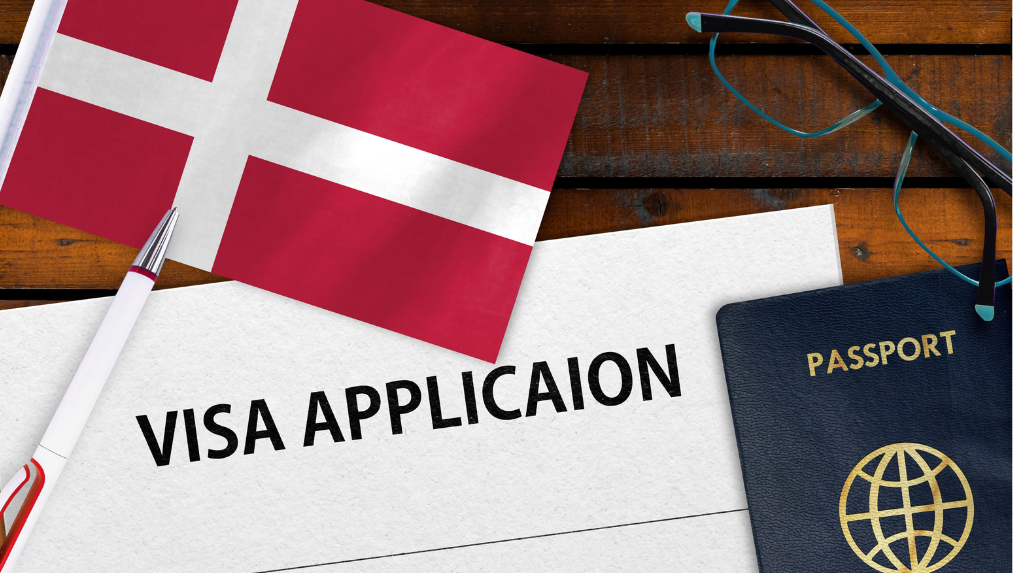
Why Study in Denmark?
Denmark is an excellent study destination for Bangladeshi students, known for its high-quality education system, globally recognized universities, and strong focus on innovation, sustainability, and interdisciplinary learning. Danish institutions are especially respected in fields such as engineering, environmental science, business, IT, design, and social sciences.
With a student-friendly environment, safe society, and progressive teaching methods, Denmark encourages critical thinking and practical skill development. English-taught programs are widely available at both Bachelor’s and Master’s levels, making it accessible to international students.
Denmark also offers post-study work opportunities, allowing graduates to stay and explore career prospects. Scholarships such as the Danish Government Scholarship and university-specific funding options help reduce financial barriers and make Denmark a competitive option for higher education abroad.

- Study in
Denmark
Study Programs in Denmark
1️⃣ Schooling (Primary & Secondary)
Compulsory education from age 6 to 16, divided into Folkeskole (primary and lower secondary) and optional upper secondary education.
Public schools are free, including for EU/EEA and many international residents.
Instruction is mainly in Danish, but many municipalities offer international schools with English-medium programs (IB, Cambridge, or American curricula), which may charge tuition.
The education system emphasizes equality, creativity, collaboration, and student-centered learning.
2️⃣ Bachelor’s Degree
Offered by Research Universities and University Colleges (UAS-equivalent).
Many English-taught Bachelor’s programs are available in fields like Engineering, IT, Business, Health Sciences, and Design.
Programs combine academic knowledge with real-world problem-solving and often include internships or project work.
Duration: Typically 3 years (180 ECTS).
3️⃣ Master’s Degree
A wide variety of English-taught Master’s programs are available at Danish universities.
Popular fields: Computer Science, Renewable Energy, Data Science, Economics, Environmental Engineering, Public Health, and Architecture.
Programs are research-driven and emphasize innovation, group work, and industry collaboration.
Duration: 2 years (120 ECTS).
4️⃣ PhD
Offered primarily by Research Universities such as the University of Copenhagen, Aarhus University, and DTU.
PhD students are typically hired as full-time employees and receive a monthly salary with social benefits.
PhD programs are research-intensive, often part of funded projects, and conducted in English.
Duration: Usually 3 years (some 4-year programs exist for integrated tracks).
Major fields: Life Sciences, Engineering, Sustainability, Social Sciences, and Digital Technologies.

- Study in
Denmark
Step-by-Step Guide
Step 1: Explore Universities and Programs
Research Danish public universities (e.g., University of Copenhagen, Aarhus University, Technical University of Denmark) and University Colleges.
Look for programs aligned with your academic background and career goals.
Step 2: Check Eligibility
For Schooling: Public schools are free for residents. Admission depends on age, residency status, and in some cases, language proficiency. International schools (English-medium) may require entrance tests or interviews.
For Bachelor’s:
HSC or A-Level equivalent with competitive grades.
For English-taught programs: IELTS 6.5+ or TOEFL iBT 83+.
Some programs may have specific subject prerequisites (e.g., math or science).
For Master’s/PhD:
Recognized Bachelor’s or Master’s degree in a relevant field.
Minimum GPA: Often CGPA 2.75–3.0+ out of 4.0.
English proficiency: IELTS 6.5+ / TOEFL iBT 90+.
PhD applicants may need a research proposal and confirmed supervisor agreement.
Step 3: Look for Scholarships
Explore funding options such as:
Danish Government Scholarships for Non-EU/EEA Students
Erasmus+ Mobility Scholarships
University-specific scholarships (e.g., at Aalborg, Roskilde, DTU)
PhD Fellowships, which are often paid employment positions with full salary and benefits
Step 4: Submit Your Application
Apply online via the optagelse.dk portal (for Bachelor’s) or directly through the university’s website (for Master’s/PhD).
Prepare and submit:
Academic transcripts
Motivation letter
CV
Proof of English proficiency
Letters of recommendation
(For PhD) Research proposal and supervisor approval
Step 5: Receive and Accept Offer
If selected, you will receive a Letter of Admission or Conditional Offer.
Accept the offer and proceed with tuition fee payment (if applicable) and visa documentation.
Step 6: Get Health and Travel Insurance
Health insurance is mandatory for international students.
Students staying more than 3 months are generally covered by the Danish public health system once registered. Until then, private health insurance is required.
Step 7: Apply for Student Visa (Residence Permit)
Apply for a Danish long-term student residence permit via the Danish Agency for International Recruitment and Integration (SIRI).
Submit your application through the Danish embassy or consulate in your country.
Required documents typically include:
Admission letter
Proof of financial means (approx. DKK 6,666/month or ~DKK 80,000/year)
Passport
Completed application form (ST1 form)
Health insurance documentation
Visa processing may take 1–3 months, so apply early.
Step 8: Prepare for Travel & Settle In
Book accommodation in advance (university housing or private rentals).
On arrival:
Register your address at the local municipality (kommune)
Apply for a CPR number (Danish ID number)
Open a bank account and get a local SIM card
Attend university orientation and familiarize yourself with Danish laws, culture, and student services

- Study in
Denmark
Average Tuition Fees
Public Schools:
Free for residents and EU/EEA citizens. Non-EU/EEA international students generally do not attend public primary/secondary schools unless they have residency.
International Schools:
Approximately DKK 70,000 – DKK 150,000 per year (varies by curriculum such as IB, British, American, etc.)
Bachelor’s Degree:
Tuition is free for EU/EEA students.
Non-EU/EEA students pay tuition fees, typically between DKK 45,000 – DKK 120,000 per year depending on university and program.
Master’s Degree:
Tuition fees for non-EU/EEA students usually range from DKK 50,000 – DKK 140,000 per year.
EU/EEA students typically study for free.
PhD:
Fully funded salaried research positions.
PhD candidates earn a salary usually between DKK 360,000 – DKK 480,000 per year as employed researchers.
General Eligibility (Higher Study)
Bachelor’s:
Higher Secondary Certificate (HSC) / A-Level or equivalent
Strong academic record
Language proficiency:
English-taught programs: IELTS 6.5+ or TOEFL iBT 83+
Danish-taught programs require Danish language certification
Master’s:
Recognized Bachelor’s degree in a related field
Competitive GPA (often minimum CGPA 2.75–3.0 out of 4.0, varies by program)
English proficiency: IELTS 6.5+, TOEFL iBT 90+
Additional requirements may include motivation letter, academic references, and relevant work experience
PhD:
Master’s degree in a relevant discipline
Strong research proposal aligned with faculty expertise
Supervisor agreement required before formal admission
May also need to submit CV, publications, and academic recommendation letters

Job and PR Pathways After Study
Denmark offers excellent post-study opportunities for international graduates, especially in sectors with high demand for skilled professionals. With proper planning and guidance, you can smoothly transition from student status to a professional career in Denmark.
Post-Study Work Permit (Job-Seeking Visa)
Eligible graduates from Danish institutions can apply for a residence permit allowing them to stay in Denmark for up to 6 months to find a job or start a business related to their education.
In-Demand Sectors
Denmark actively seeks skilled workers in IT, engineering, life sciences, healthcare, renewable energy, and finance. We help you identify career opportunities aligned with your qualifications.
Career Support and Job Market Guidance
Receive assistance with Danish-style CV preparation, interview skills, and insights into the Danish labor market to enhance your chances of employment after graduation.
Residency and Long-Term Planning
Get expert advice on transitioning from temporary residence permits to permanent residency or work permits. We guide you through pathways such as the Positive List and the Pay Limit Scheme for work authorization.
Our Support During the Process
We’re with you every step of the way—from your first consultation to settling into life in Denmark and beyond. Our goal is to make your journey smooth, informed, and successful.
Personalized consultation at every step – We take time to understand your academic goals, financial situation, and preferences to guide you toward the best-fit programs and universities in Denmark.
One-on-one support for admission, visa & travel – Receive dedicated assistance with university applications, document preparation, visa submissions, and travel arrangements.
Always accessible—call, WhatsApp, or in person – Our advisors are available through your preferred communication channels to provide help whenever you need it.
Regular updates, reminders & document reviews – Stay on track with timely updates, reminders, and thorough reviews to ensure no deadlines or requirements are missed.
Post-arrival check-ins & alumni mentoring – We stay connected after you arrive, offering ongoing support and connecting you with alumni who have successfully transitioned.
Support for job search and residency planning – Even after graduation, we assist with job search strategies, resume preparation, and guidance on long-term options like work permits and permanent residency in Denmark.
Visa Categories for Study in Denmark

Residence Permit for Higher Education (Student Visa)

Short-Term Study Visa (Up to 90 Days)

Residence Permit for Researcher or PhD Students

Post-Study Work and Job Search

Visa Application Checklist
Personal & Identification Documents
- Valid Passport: Must be valid for at least 6 months beyond your intended stay.
- National ID Card (NID): If applicable.
- Passport-sized Photographs: Recent photos meeting visa specifications.
- Marriage or Divorce Certificate: If applicable, to verify marital status.
Academic & English Language Proficiency
- Academic Certificates & Transcripts: Including degrees, diplomas, and relevant qualifications.
- Letters of Recommendation: From academic or professional referees.
- Curriculum Vitae (CV)/Resume: Detailing academic and work history.
- Portfolio: Required for courses in creative fields like design or architecture.
- English Language Test Results: Valid scores from accepted tests such as IELTS, TOEFL iBT, PTE Academic, CAE, or OET.
Course Enrollment & Intent
- Academic Certificates & Transcripts: Including degrees, diplomas, and relevant qualifications.
- Letters of Recommendation: From academic or professional referees.
- Curriculum Vitae (CV)/Resume: Detailing academic and work history.
- Portfolio: Required for courses in creative fields like design or architecture.
- English Language Test Results: Valid scores from accepted tests such as IELTS, TOEFL iBT, PTE Academic, CAE, or OET.
Financial Evidence
- Proof of Financial Capacity: Demonstrating access to at least AUD 29,710 to cover tuition, living expenses, and travel.
- Bank Statements: Recent statements showing sufficient funds.
- Fixed Deposits (FDRs) or Deposit Pension Schemes (DPS): If applicable.
- Sponsorship Letter: If someone else is funding your studies, include a letter detailing the sponsorship.
Health & Character Requirements
- Overseas Student Health Cover (OSHC): Mandatory health insurance for the duration of your stay.
- Tuberculosis (TB) Test Results: If required based on your country of residence.
- Police Clearance Certificate: To demonstrate good character.
For Applicants Under 18
- Parental Consent Form: Completed by parents or legal guardians.
- Custody Documents: If applicable, provide evidence of sole custody or guardianship.
Visa Application Process
Biometric Information
Schedule an appointment with the Danish Embassy or Consulate in your country for biometric data collection and document submission as part of the student visa application process.
Travel Itinerary
Prepare a tentative plan of your travel dates, flight bookings, accommodation, and expected arrival in Denmark. This is required as part of your visa documentation.
Visa Application Submission
Apply for a Danish Student Residence Permit (study visa) through the Danish Immigration Service (SIRI) website or via the Danish Embassy/Consulate in your home country.
You must submit all required documents, including your university admission letter, proof of financial means, and valid health insurance.
Note: The application process usually involves online submission, but biometric data and supporting documents are submitted at the embassy or visa application center.
Visa Application Fee
Approx. DKK 3,600 (around EUR 480), subject to change based on official rates.
Processing Times
Standard Processing:
Student residence permit applications for Denmark typically take 8 to 12 weeks to process after submission. Processing times can vary depending on the applicant’s country, embassy workload, and completeness of the application.
Extended Processing (if additional checks or documents are required):
In some cases, processing may take longer—up to 4 months or more—due to additional document requests, background checks, or verification procedures.


